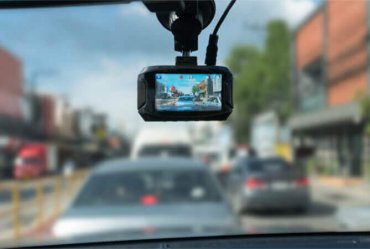
While it’s true that teen drivers are at an increased risk of being involved in a car accident, they’re certainly not alone. Older drivers are also very susceptible to accidents. According to the Centers for Disease Control and Prevention, an estimated 540 older motorists are injured every day in motor vehicle crashes, while 20 suffer fatalities.
However, the good news is that being older doesn’t mean you should no longer be in the driver’s seat (or that you should pay more for auto insurance for senior citizens!). There are several steps mature drivers can take to minimize their risk of a car accident and stay safer on the road.
Age Is Inevitable, Talk With Your Senior Driver
The first step for older driver safety is to accept that driving won’t last forever. Time brings changes to our skills and physical fitness that we cannot ignore. As a caregiver, it’s important to let this be clear to the older adult in the family. Likewise, as a driver you have to start acknowledging it’s bound to happen. If you’re 65 years or older, you’re in the age group that must start preparing alternatives.
We know it’s not easy! Being able to move on your own is a great advantage in your day to day life. To not depend on anyone else for transportation gives us freedom of movement and control of our schedule. Depending on where you live and your activities, it can also be a cheaper way to move around your area. Those are some of the many reasons why approaching the idea of not being able to drive due to age can be hard.
Still, in order for older people to be safe, as well as those that drive around them, it’s necessary to prepare for this with time and not address it until it actually happens. Why? It’s better to be well informed about why it must be done, so it doesn’t seem like it’s just a punishment or a more convenient situation for caregivers. Sure, it will probably be an awkward conversation, but it’s definitely worth it if it keeps everyone on the road safer.
You should gather useful resources and information, for example signs that aging is affecting someone’s driving and alternatives that can be used (like public transportation and taxi services), and focus on the positive.
Warning Signs You Should Look For
There’s no specific age when someone’s driving is affected. So this is not the main factor you should be looking at. Instead, focus on their health and performance on the road. Specifically, think about what could affect reaction times, spatial ability and visibility.
- Vision: One of the most expected side effects of aging is loss of vision. It’s also the main element when driving, so be wary if your senior driver has trouble seeing. This implies missing road signs like red lights, other cars or pedestrians and other basic highway safety practices. If they suffer from eye diseases like glaucoma or cataracts, it will definitely affect driving. Check for any changes in their eyesight.
- Hearing: Another common aging sign is having trouble hearing, another major element of driving. Hearing other cars, sirens or noises your car makes is essential to be a capable driver.
- Reaction time and reflexes: Slower motor reflexes also come with age. It’s important to be able to react quickly to the changing conditions around your car. What happens if a car drives recklessly into your lane? Or a child crosses the street too soon? Even being able to look over your shoulder. Slower motor skills, due to causes like aging joints, can prove fatal.
- Cognitive faculties: Getting confused, dizzy or disoriented is definitely a risk of injury while driving. It could result in a crash or a lost elderly driver.
- Check your medication: The above signs can be affected not by age, but by the medication you can be taking. Remember to check the possible side effects of each and be on the lookout in case they appear.
- Listen to your social circle: Sometimes a neighbor, family member or friend can be the first one to notice a moment like the ones described above. Listen to the people around you and start monitoring!
Older Driver Safety Tips
There are many ways we can help the senior drivers in our family to drive safely. Follow these tips to encourage a better health and safe driving experience.
- Basics first: wear your seat belt whether you drive or not.
- Always wear your glasses and make sure they have a current prescription. Don’t use an older pair that has an outdated prescription. Also, avoid eyewear with side pieces that may block your vision.
- Keep your windshield, mirrors and headlights clean at all times to maximize visibility.
- If you are 60 or older, be sure to get screened annually for common medical conditions like cataracts, glaucoma, diabetic retinopathy and others.
- Get checked by your doctor if you experience pain or swelling in your feet or stiffness in your arms, legs or neck. If any medication or activity is prescribed, stick to it!
- Seniors are more easily distracted. Limit passenger conversation and other distractions, like the radio or cell phone conversations, even if you use a hands-free device.
- Sit at least ten inches from the steering wheel to reduce the chances of an injury from the air bag.
- Drive during the day to avoid low visibility during the night. This also applies to bad weather conditions.
- Steer clear from rush hour. Otherwise, find different routes with less traffic.
- When approaching intersections, remember to look to the sides of the roads, as well as directly ahead.
- Being older comes with some physical limitations. Be aware of your own regarding vision, hearing and mobility to see how they may affect your driving.
- If you take medications, consult with your doctor to evaluate the interactions and side effects.
By taking these steps, older people can help prevent accidents on the road. For more tips and resources on how mature drivers can stay safe, consult the National Highway Traffic Safety Administration at nhtsa.gov.
It’s Time to Stop Driving
While we mentioned things to look for before, there are other signs that make it clear your senior driver should stop using their vehicle. Among them are:
- One or multiple car accidents.
- Constant close calls with crashes.
- Dents or scrapes on the car, especially if they can’t recall how they got them.
- Traffic tickets or warnings recently.
- Warnings from neighbors or social circles about bad or dangerous driving.
- Considerable problems with vision, hearing or reflexes.
Keep an Eye Out and Drive Safely!
Driving won’t last forever, but we can make it last as long as we can. And while your elderly driver is in their vehicle, be sure they are protected and choose the best car insurance for senior citizens. In many cases they even apply for a mature, retired, or senior citizen car insurance discount.
Freeway Insurance is here to help! We offer the best quotes and benefits. Get the information you need by phone at (800) 777-5620. Or, find the Freeway Insurance office near you to schedule an appointment with an agent.



